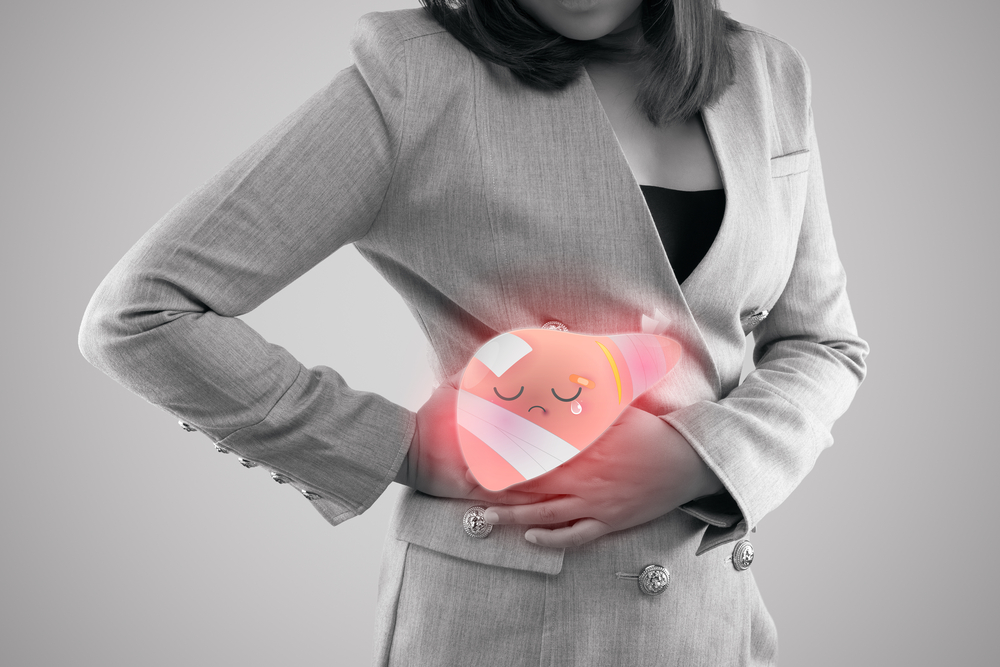Stress: Signs, Causes, Management & Prevention
Written By: Dr. Laila Adel Mahmoud
Updated On:December 26, 2023

What is Stress?
Everyone, at one time or another, experiences stress to a certain degree. This stress can take the form of physical, emotional or psychological strain. It is your body’s instinctive response to a cause that requires action or attention. Although for the most part stress is an anticipated part of everyday life, it can become problematic when the stress negatively affects your mental & physical well-being. It can affect anyone & can be experienced by any age group. Short, mild bouts of stress can be motivating & spur us on to meet work deadlines or accomplish tasks.
Too much stress, however, can affect your mood, health & relationships especially when not addressed properly. It can significantly increase irritability & negatively affect self-esteem. Extended periods of increased stress can lead to physical & emotional exhaustion & is often referred to as burnout.
What are the Symptoms or Signs of Stress?
Symptoms of stress can vary from mild to severe. Mild cases can be treated & managed with more ease than severe cases in which burnout has taken its toll. Sufferers of stress usually experience multiple symptoms. These symptoms can include:
- Avoiding challenging responsibilities
- Racing thoughts
- Increased irritability
- Lack of confidence
- Difficulty concentrating
- Dysfunctional eating habits - eating more or less than usual
- Difficulty sleeping
- Feeling fatigued
- Constant feeling of worry or anxiety
- Avoiding people
- Feeling overwhelmed
- Excessive drinking or smoking
Common physical symptoms of stress in adults can also include:
- Headache
- Muscle tension
- Racing heartbeat
- Diarrhoea
- Decreased libido
- Grinding teeth
- Clammy or sweaty palms
When Should I Talk to a Doctor About Stress?
While stressful situations can be inevitable, healthy management of both triggers & reactions can, for the most part, keep you in a position of control. However, when management becomes increasingly difficult, sufferers may turn to less than ideal habits in order to ease the discomfort.
You should consult your doctor when:
- Your stress management efforts are not working
- Your stress is causing or exacerbating serious health issues (E.g. High blood pressure)
- You’re finding yourself using drugs to cope
- You’re consuming excessive amounts of alcohol to cope
- You’re noticing a steep drop off in productivity or workplace performance
- You’re experiencing prolonged periods of insomnia
- You’re experiencing chest pains and/ or rapid heartbeat
- You’re experiencing prolonged periods of headache
- You’re having thoughts of harming yourself or others
One should feel safe to talk to a medical expert at any time when feeling overwhelmed or experiencing any of the above. Professional help can often put you at ease & offer valuable guidance & support.
What are the Causes of Stress?
The exact causes of stress can vary from person to person. Some sufferers may have a high tolerance for stress in comparison to others. Stress can trigger the body’s fight-or-flight response to perceived danger – a response in which hormones such as adrenaline & cortisol are released. This release increases the heart rate, slows digestion & gives the body a burst of energy. Although originally thought to be triggered as a survival instinct, everyday situations such as work place stress or traffic jams can trigger this response in some.
Common causes of stress can include:
- Financial difficulties
- Pregnancy
- Challenging work environment
- Personal health issues or the health issues of a loved one
- Unexpected life changes
- Difficulty in our personal lives
- Challenging relationships
- Upbringing & life experiences
What are the Different Types of Stress?
Due to its effectiveness as a survival instinct, not all stress can be considered harmful or negative. Different types of stress include:
- Acute Stress: This is a short-term stress that can be positive or distressing & is the most common type of stress we encounter in daily life.
- Chronic Stress: Manifesting as a prolonged period of stress that appears inescapable, chronic stress can be brought on by traumatic life-experiences, unhealthy relationships or marriages & extremely taxing occupations.
- Episodic Acute Stress: A prolonged period of acute stress which can result in uncontrollable anger, panic attacks & exhaustion is known as episodic acute stress.
- Eustress: Considered a positive form of stress, Eustress can, for example, include the feeling of excitement experienced when skiing or surfing.
- Post Traumatic Stress Disorder (PTSD): PTSD is a psychiatric disorder brought on by the witnessing or experiencing of a traumatic event.
What are Some of the Complications Associated with Stress?
Extended periods of intense acute or chronic stress can have a serious impact on your health & autonomic nervous system. Unaddressed stress in children & adults can result in complications & additional conditions including:
- Diabetes
- Depression
- Hair loss
- Heart disease
- Obesity & other eating disorders
- Tooth & gum disease
- Ulcers & gastrointestinal problems
- Sexual dysfunction
- Menstrual problems
- Increased risk of heart attack & stroke
Treatment Options for Stress
There is no distinct medical diagnosis for stress, nor is there a single specific treatment for it. Effective treatment for stress requires focusing on developing coping skills & addressing situations. The common triggers of the discomfort associated with stress can often be managed with a combination of:
- Appropriate support
- Advice & support for parents, guardians & affected children
- Prescribed medication including sleep aids, antidepressants & anti-anxiety medication
- Psychological therapies e.g. cognitive behavioural therapy (CBT)
- Complementary & alternative medicine (CAM)
Living With and Preventing Stress
The challenges associated with living with or with a loved one suffering from stress can be mitigated with support & management. Useful measures to help manage stress can include:
-
Maintaining a Healthy Home Environment: Being organised, maintaining open communication & eating well can all contribute towards fostering a positive atmosphere in the home & help avoid breakdowns & irritability. Certain foods including fatty fish, dark chocolate & berries high in anthocyanins have been shown to improve overall brain health & promote a feeling of well-being.
-
Frequent Exercise: Activities such as hiking or attending a spin class can all help focus the mind & relieve stress. The additional rush of feel-good hormones & burning of extra calories can help shed unwanted pounds & improve self-esteem.
-
Joining Regional Social Groups: Social experiences can directly impact stress. Joining a support group, for example, enables you to share ideas, make friends & find assistance in challenging times. Knowing you are not alone & reaching out for help can often be invaluable.
-
Enjoying Relaxation or Mindfulness Techniques: Taking a break or time-out to focus the mind & organise thoughts can significantly help minimise irritability & disrupt negative thought patterns.
-
Staying Organized: By being in control & staying organized, stress build up can be reduced. Managing & being on top of affairs at home or in the work place can help improve self-esteem, reduce negative doubt & avoid conflict.
-
Learning to Recognize the Signs of Burnout: Being able to recognize the early stages of burnout can allow you to focus on root causes & address them promptly. Using a combination of self-help & relevant support, burn out can be a thing of the past & used as a motivation to spur self-improvement & a happy home life.
For more information on managing & preventing stress, get in touch with us.
Meet our doctors from the Psychiatry department



















